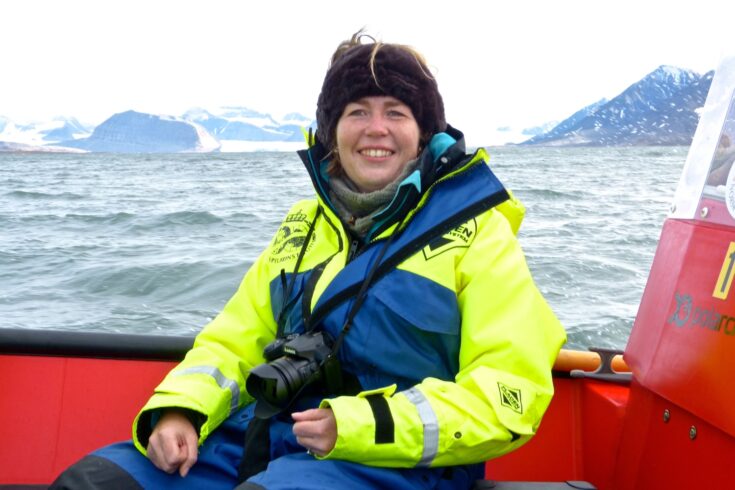The research community can only tackle the huge challenges posed by climate change by working together to embed sustainability at the very heart of higher education research and innovation, says Alison Robinson, NERC Deputy Executive Chair.
The recently launched UK Research and Innovation (UKRI) environmental sustainability strategy (PDF, 1.4MB) outlines some ambitious goals for the research community. As an organisation, we’ve committed to hit net zero carbon emissions by 2040, as well as taking a broader approach to sustainability by enhancing biodiversity and re-thinking our use of resources.
Huge challenges
These are huge challenges, for our institutions and also for us as individuals in our organisations and everyday lives. We need to rethink how we operate on a day-to-day basis and embed sustainability into everything we do. It’s why, for me, the most important thing that will help us deliver our strategy is collaboration. With our wealth of research and innovation expertise, if any sector can hit these ambitious targets, it is ours – but we can only do it if we work together.
Fundamental to that collaboration is engaging the higher education institutes and wider research organisations. I’m not just talking about campus buildings and facilities – although UKRI is investing a huge amount into sustainable infrastructure and we can learn a lot from you and each other – but how research and innovation is carried out. How can we embed sustainability into the decision-making of researchers and innovators? How can we make it an integral part of our culture?
UKRI grant-holders use some fantastic but energy-hungry equipment to undertake their essential research, such as the huge super-computers to model climate change and data stores for the longitudinal studies used in the social sciences. We need to find sustainable ways to power this essential kit and data. Our challenge is to listen to the science of our own work and apply it to our on-the-ground practice.
If you’re studying the deep ocean, for example, how do you think about environmental sustainability in that context? Are there ways to explore the ocean as we do the stars? Are there non-carbon ways of using ships – or other technologies we can use instead? How can we travel less in undertaking research? In other words, how can we meet our environmental obligations and still foster excellence and impact in research and innovation?
Opening up the discussion
UKRI doesn’t pretend to have all the answers, we want to open up the discussion so we can tackle this together. Last week, I spoke at the EAUC Global Climate Conference about the work of its Climate Commission, a collaboration between EAUC (The Alliance for Sustainability Leadership in Education), Universities UK, Association of Colleges, and Guild HE to deliver a sector-wide response to the climate emergency. One of the great things about the Climate Commission is the student commissioners. It’s so valuable to have their voice and perspective, and to hear from our future researchers and innovators.
Speakers such as Student Climate Commissioner Manvir Gill highlighted the importance of student bodies as drivers for change. And one of the most promising things I took away from the conference was that UKRI’s aims to reduce carbon emissions and enhance biodiversity are goals shared by many students, as well as organised collaborations such as the Climate Commission. For them, and I agree, sustainability should not be seen as an add-on to good practice, but an inherent part of research and innovations excellence – and across all disciplines.
It won’t be easy. Grappling with these solutions will inevitably involve trade-offs where, for example, the need for carbon reduction will be balanced with protecting biodiversity. The UK is at the forefront of climate science, so we must use our expertise to ensure we create a new best practise for research that puts sustainability at its core.
Discussing and sharing best practice
While there are significant challenges at scale, it’s also important we start discussing and sharing best practice for day-to-day decision-making. UKRI wants to encourage that dialogue, to bring in a range of voices and perspectives, and we will be establishing a series of round-table discussions in the new year. Our environmental sustainability goals may be ambitious, but I am sure that by working together as a research and innovation system, we will rise to the challenge.
Last updated: 23 February 2023

